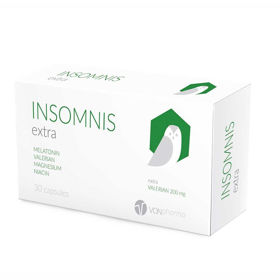Vprašanje stranke:
Katere so najboljše tablete za spanje? Vprašanje anonimne stranke
Odgovor farmacevta:
Izbira najboljših tablet za spanje je odvisna od posameznika in njegovih specifičnih potreb ter zdravstvenega stanja. Splošno priznana zdravila za spanje, ki jih zdravniki pogosto predpisujejo ali priporočajo, vključujejo:
- Zolpidem: zolpidem je zdravilna učinkovina, ki pomaga pri uspavanju in se uporablja za kratkotrajno zdravljenje nespečnosti. Deluje hitro in je učinkovit pri pospeševanju spanja.
- Eszopiclone (Eszopiklon): je dolgotrajno delujoča zdravilna učinkovina za spanje, ki pomaga pri vzdrževanju spanja skozi noč. Je učinkovit pri zdravljenju težav s spanjem, kot so težave s spanjem in zgodnje jutranje bujenje.
- Zaleplon: je še ena zdravilna učinkovina, ki deluje hitro in se uporablja za pomoč pri uspavanju. Je koristno za ljudi, ki imajo težave z uspavanjem.
- Ramelteon: je zdravilna učinkovina, ki deluje tako, da posnema naravni ciklus melatonina. Uporablja se za zdravljenje težav s spanjem in motenj cikla spanja.
Pomembno je upoštevati, da so vse te zdravilne učinkovine del zdravil na recept, zato je potrebno njihovo uporabo skrbno spremljati pod nadzorom zdravnika. Poleg tega obstajajo tudi drugi pristopi za izboljšanje spanja, kot so vedenjske terapije za spanje, spremembe življenjskega sloga in uporaba naravnih dodatkov, kot je melatonin. Preden se odločite za katerokoli zdravilo za spanje, se posvetujte s svojim zdravnikom, da se ugotovi najboljša možnost zdravljenja glede na vaše individualne potrebe, zdravstveno stanje in morebitne druge dejavnike tveganja.
Kako izbrati prave tablete za spanje?
Izbira pravih tablet za spanje je lahko kompleksen proces, saj je pomembno upoštevati več dejavnikov, vključno z vašimi individualnimi potrebami, zdravstvenim stanjem, morebitnimi drugimi zdravili, ki jih jemljete, in drugimi specifičnimi okoliščinami.
Tu je nekaj korakov, ki vam lahko pomagajo pri izbiri pravih tablet za spanje:
- Posvetovanje z zdravnikom: pred začetkom uporabe tablet za spanje se vedno posvetujte s svojim zdravnikom. Zdravnik vam lahko pomaga ugotoviti, ali so vaše težave s spanjem posledica osnovnih zdravstvenih težav ali drugih dejavnikov, ki jih je treba obravnavati najprej.
- Ocenite vzrok težav s spanjem: različni ljudje imajo lahko različne vzroke za težave s spanjem, na primer stres, anksioznost, depresija, telesne bolezni ali okoljski dejavniki. Razumevanje osnovnega vzroka vaših težav s spanjem vam lahko pomaga pri izbiri najboljše možnosti zdravljenja.
- Preučite vrste zdravil za spanje: obstaja več različnih vrst zdravil za spanje, vsako s svojimi prednostmi, slabostmi in učinki. Na primer, nekatera zdravila delujejo hitro in so bolj primerna za uspavanje, medtem ko druga pomagajo pri vzdrževanju spanja skozi noč. Preučite različne možnosti in razpravljajte o njih s svojim zdravnikom.
- Preverite morebitne interakcije z drugimi zdravili: če jemljete druge zdravila, je pomembno preveriti morebitne interakcije z zdravili za spanje. Nekatera zdravila za spanje lahko vplivajo tudi na druga zdravila ali celo povečajo njihovo toksičnost.
- Omejitve uporabe in stranski učinki: preverite omejitve uporabe in možne stranske učinke zdravil za spanje. Nekatera zdravila so na primer bolj primerna za kratkotrajno uporabo, medtem ko se druga lahko uporabljajo dolgoročno, vendar morda pod strožjim/rednejšim nadzorom.
- Razmislite o alternativnih pristopih: poleg zdravil za spanje obstajajo tudi druge možnosti, kot so spremembe življenjskega sloga (npr. redna telesna aktivnost, omejitev vnosa kofeina in alkohola pred spanjem), terapije za spanje in naravni dodatki, kot je melatonin.
- Sledite navodilom za uporabo: ko vam je predpisano določeno zdravilo za spanje, natančno sledite navodilom zdravnika in proizvajalca glede odmerjanja, časa uporabe in morebitnih previdnostnih ukrepov.
Z izvajanjem naštetih korakov bolje razumeli svoje potrebe po spanju in izbrali najprimernejšo možnost zdravljenja, ki je primerna za vas. Poudarjamo, da je posvetovanje s strokovnjakom najboljši način za pridobitev individualiziranih nasvetov in izvajanje varne uporabe zdravil za spanje.
Zanimivo branje: Melatonin za spanje








 Facebook
Facebook
 Instagram
Instagram
 info@moja-lekarna.com
info@moja-lekarna.com

